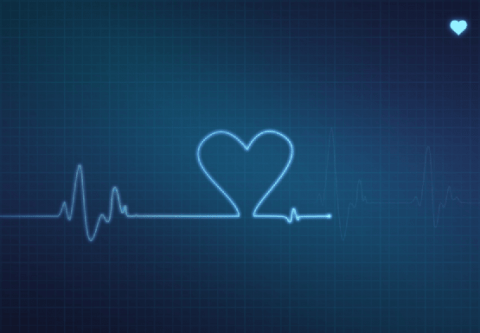Is an Ultrasound Necessary? Here Is What You Need to Know

How to Know If a Cardiac Ultrasound Necessary
If you’ve suffered a heart attack or you have a murmur or another heart condition or concern, then your physician or heart specialist has probably recommended a heart ultrasound, also known as an echocardiogram.
Echocardiograms allow for a clear picture of the different dimensions of your heart, from movement to valves to clots. Their technology can be traced all the way back to World War I in the early use of sonar to detect enemy submarines. However, Inge Edler is often credited as being the father of echocardiography due to his innovations in the field. Cardiac Solutions in Peoria, AZ, has gathered other information here to answer your questions if you’ve been recommended an echocardiogram.
What an Echo-Cardiogram Is
An echocardiogram is a heart ultrasound that uses sound waves to create pictures of your heart’s inner workings, from valves to murmurs and more. Using high-frequency waves, an ultrasound shows a doctor each of the four chambers of your heart, its valves and walls, blood vessels, and the pericardium, or the sac that surrounds the heart. This allows for an unparalleled look into your heart’s functionality and any cardiac problems that may be present.
To get a better view of the heart or to test for specific functions, specialized versions of echocardiograms are also available. Contrast ultrasounds and echocardiograms with Doppler ultrasound are used to get a better view of your blood flow through the heart. Other specialized ultrasounds include stress echocardiograms and transesophageal echocardiograms to test how the heart performs during activity or to get a better view of a specific area, respectively.
Reasons You Might Need an Echo-Cardiogram
While there are many reasons your doctor or cardiologist might ask you to receive a cardiac ultrasound, there are a few that are the most common. For instance, echocardiograms are often used after you suffer a heart attack in order to assess the damage done and the heart’s current function. They can also be used to look for blood clots or keep an eye on a cardiac birth defect or heart murmur. Other common reasons include:
- Diagnosis of suspected heart condition
- Test and assess blood flow through the heart
- Monitor heart and lung function in people who are chronically or critically ill
- Assess chest pain
- Look for blood clots
- Identify and monitor tumors or other growths in the heart
Of course, there are plenty of other reasons your cardiologist might ask you to receive an echocardiogram. This isn’t an exhaustive list. If your physician has recommended or requested it, you should follow their advice.
The Echo-Cardiogram Procedure
With an echocardiogram, there is no pain and no risks involved. During most cardiac ultrasounds, you’ll also be monitored by an EKG machine that uses small metal plates to monitor your heart function during the test to get a well-rounded idea of your heart’s health.
The echocardiogram itself will be simple. A cool gel is applied to your chest and then the handheld ultrasound wand will be passed across your chest to get images of your heart. Depending upon the test and technician, you might be asked to hold your breath or move slightly to adjust the image. Images are displayed in real-time on a video monitor and recorded so they can be reviewed later by your physician or cardiologist.
Put Your Heart First
Cardiac issues can be some of the scariest health problems you face in your life. Your heart is what keeps your body going, and if it experiences troubles, it can affect your entire body, from your lungs to your blood to your brain.
That being said, echocardiograms aren’t something to be afraid of. They’re easy, painless, and risk-free procedures. Using the latest technology, echocardiograms show your cardiologist in detail what’s going on with your heart so they can address any problems. Regardless of why you need an echocardiogram, we at Cardiac Solutions hope that this has helped you become more at ease with the thought of having one done.
Need an Echo-Cardiogram? Contact Us to Schedule an Appointment
Main Office Number 623-876-8816
Office Hours: 8:00am-4:30pm, M-F
After Office Hours Call: 623-876-8816
Citations: https://www.wkhs.com/heart/services/diagnostic-tests/echocardiogram-(cardiac-ultrasound), http://www.heart.org/HEARTORG/Conditions/HeartAttack/DiagnosingaHeartAttack/Echocardiogram—Echo_UCM_451485_Article.jsp#.WrNH8i7waCg, https://www.ncbi.nlm.nih.gov/pmc/articles/PMC2170493/
